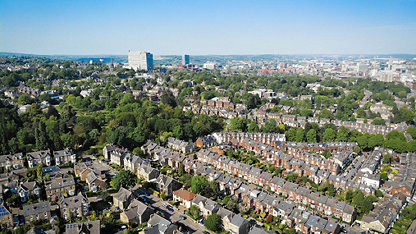Improving the Curriculum and Assessment System
Response by the Royal Institution of Chartered Surveyors (RICS)
Introduction
The Royal Institution of Chartered Surveyors (RICS) is pleased to respond to this consultation by the Department for Education.
Established in 1868, RICS is the largest organisation of its kind for professionals in property, construction, land, and related environmental issues, setting and upholding professional standards for 135,000 professionals and over 10,000 firms. RICS regulates both its individual qualified professionals and those firms that have registered for regulation by RICS.
Over 100,000 members work in the UK, where our goal is to deliver a healthy and vibrant property and land sector as a key pillar of a thriving economy while addressing the need for the creation of green, safe communities.
We are not a trade body; we do not represent any sectional interest, and under the terms of our Royal Charter the advice and leadership we offer is always in the public interest.
Key recommendations
The Construction Skills Network (CSN) estimates that over 225,000 additional workers will be needed by 2027 to meet the demands of the built environment sector e.g. in land, property and infrastructure. RICS is concerned with the persistent skills gap in the sector and a robust, future-oriented education system is essential in addressing this challenge.
There is a need for an education system that better integrates with industry and technical, vocational, and digital skills required for careers in the built environment to ensure that the UK workforce remains competitive, skilled, and equipped to meet emerging challenges and address UK sustainability targets. We recommend:
Recommendation 1: Introducing an English Built Environment GCSE
RICS recommends the introduction of a Built Environment GCSE in England as endorsed by the House of Lords Built Environment Committee which would inspire the next generation of professionals to pursue vocational careers. It would also showcase the important role the sector has in meeting our infrastructure, housing, and environmental needs.
The Built Environment GCSE would be a vital step in aligning education with national priorities on net zero, sustainability and levelling up. The GCSE would prepare students to address environmental challenges in future careers and could engage students in underserved regions where built environment jobs are critical to local economies, it would provide a foundation to futureproof the skills pipeline.
There is also potential to incorporate industry engagement into the GCSE which would enhance its relevance and impact. Work placements, employer-led projects, and visits to construction sites and infrastructure projects could provide invaluable real-world insights and inspire young people.
The introduction of this qualification could address diversity and inclusion challenges, the built environment sector has historically struggled with underrepresentation, particularly among women and ethnic minorities. A GCSE would provide an accessible entry point for students from all backgrounds, helping to foster a more inclusive workforce.
Recommendation 2: Embedding the Built Environment into the existing curriculum
RICS recommends surveying and built environment topics be embedded into the existing curriculum so that students can gain a broader understanding of the importance of the built environment and build transferable skills.
Examples of topics that can be embedded include sustainability, climate adaptation, and low-carbon construction into core subjects, especially those aligned with STEM and geography. There is also a growing need for digital skills within the sector, curriculum elements that cover digital tools and methodologies such as data analysis, carbon measuring and Building Information Modelling (BIM) should be introduced.
Recommendation 3: Strengthening T-Levels
RICS recommends an increased emphasis on T Levels and vocational routes that provide young people with the practical skills necessary for industry roles. The introduction of T Levels has been a significant step forward in addressing skills shortages in key industries however, further efforts are needed to promote their uptake, ensure quality delivery, and align them more closely with employer needs.
Existing T Levels in areas such as construction, design, and building services engineering are a strong start, however additional specialisations would benefit the sector, these could include surveying and sustainable construction. T Levels should emphasise emerging technologies in the built environment which are critical to the sector.
Meaningful work placements can be a challenge for those undertaking T Levels, RICS encourages the government to reduce challenges for employers, increasing incentives for employers to provide high-quality placements, particularly for SMEs, streamlining administrative requirements to make it easier for businesses to participate and provide guidance to help employers structure placements that align with the T Level curriculum.
T Levels offer students clear pathways into employment, apprenticeships, or further education.
Recommendation 4: Enhancing industry engagement
RICS recommends closer collaboration between schools, employers, and industry to provide meaningful work experience, internships, and mentorships as part of their curriculum. Enhanced industry engagement is critical in equipping young people with the skills, knowledge, and experience required to succeed in the workplace.
Industry engagement provides valuable insights which ensures that education remains relevant and future-proof. Employer-school partnerships should be strengthened so that industry professionals can assist in career guidance e.g. delivering career talks and workshop and raising awareness of pathways into the built environment sector.
These recommendations address pressing challenges such as net-zero targets, inclusivity, and regional economic growth. They also provide young people with accessible pathways into rewarding careers, future-proof the sector’s skills pipeline.
RICS recognises that our recommendations will require collaboration across government, education, and industry, we welcome the opportunity to collaborate further to ensure that the built environment sector is prepared for the future.
Contact details:
Mahvesh Ibrar
RICS Senior Public Affairs Officer













